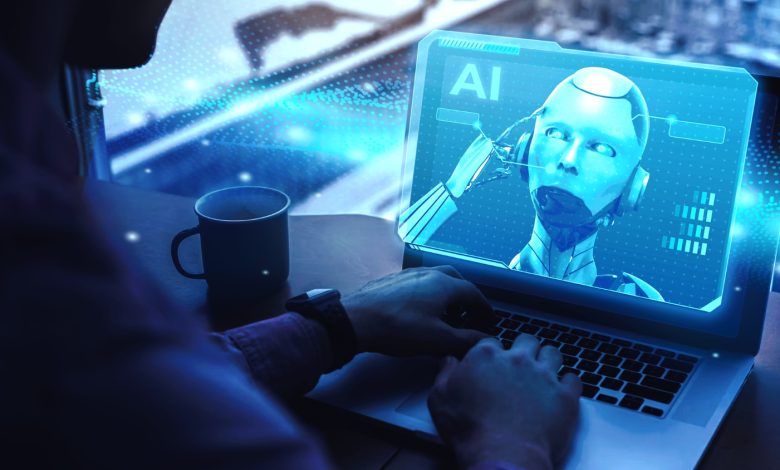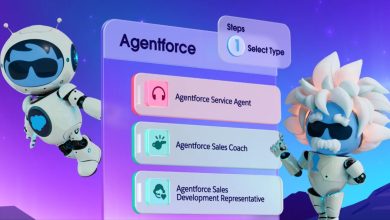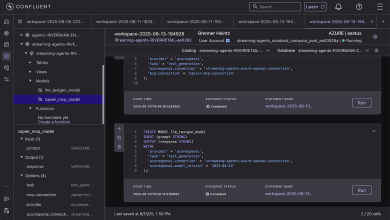Predictions 2025: AI Agents Transform Operations and Human Roles

By Rahul Yadav, Chief Technical Officer, Milestone Systems
As a technology leader who has spent years working at the intersection of artificial intelligence and video security, I’ve witnessed numerous transformative shifts in our industry. But none quite compared to what we’re seeing emerge for 2025. We are standing at the threshold of fundamental changes that will reshape not just how we think about security technology, but how we interact with AI across every industry sector. The convergence of advanced AI capabilities with practical applications is creating unprecedented opportunities for innovation and efficiency.
The Era of Agentics
The most significant shift ahead is what’s becoming known as the Era of Agentics. Unlike traditional AI systems that follow prescribed steps, AI agents are autonomous systems capable of understanding contexts, making decisions, and taking actions independently. These agents — similar to but far more sophisticated than today’s chatbots — use generative, training-based approaches rather than deterministic programming. By 2025, we’ll see these agents emerging across different products and services, from video analytics to automated security responses.
Think of AI agents as digital colleagues that can handle complex tasks without constant human direction. They can wait for specific conditions, respond to prompts, or act on their own initiative when they detect relevant situations. Most importantly, they learn from their actions and adapt to new scenarios, much like human operators do. In security applications, this means systems that can automatically identify potential threats, coordinate responses, and even predict incidents before they occur.
The real power of these agents lies in their ability to reason and adapt. Unlike traditional software that needs explicit programming for every scenario, these systems can understand context and make nuanced decisions. This capability will transform everything from access control to emergency response, creating more intelligent and responsive security environments.
Beyond Thinking: The Age of AI That Acts
In the evolution of artificial intelligence, we’re witnessing a pivotal shift from systems that merely analyse to those that take decisive action. While traditional metrics like IQ measure cognitive ability and EQ gauges emotional awareness, a new capability is emerging: the power to act intelligently and autonomously — AQ (Action Quotient). Think of Tesla’s self-driving cars, which don’t just process road conditions, they smoothly navigate complex traffic scenarios in real time.
This shift toward action intelligence is particularly relevant in security operations. Traditional monitoring systems alert operators to potential issues, requiring human intervention for every response. In contrast, high-AQ systems can assess situations, initiate appropriate responses, and adjust their actions based on changing conditions. This capability will transform how we approach security management, making systems more proactive and less dependent on constant human oversight.
The implications extend far beyond simple automation. These systems will be able to coordinate complex responses across multiple subsystems, from access control to emergency communications, creating more comprehensive and effective security solutions. The key is that these actions aren’t just pre-programmed responses — they’re intelligent decisions based on real-time analysis and learned patterns.
The Human Element
Despite these technological advances, human roles aren’t disappearing, they’re evolving. As Microsoft’s CEO aptly noted, “It’s not AI that will replace you, but someone using AI who will.” Success in 2025 and beyond will depend on how effectively we learn to work alongside these AI systems, using them to augment our capabilities rather than replace them entirely.
Consider how coding has evolved: today, even young students can create sophisticated programs using AI-assisted tools. This democratisation of technology doesn’t eliminate the need for human expertise; instead, it elevates our role from routine tasks to higher-level decision-making and oversight. Security professionals will need to develop new skills focused on managing and directing AI systems rather than performing routine monitoring tasks.
The key to success will be in learning to work with AI as partners, not tools, because the better we collaborate, the smarter and faster we all become. Humans excel at understanding context, making nuanced judgments, and handling unexpected situations — skills that will become even more valuable as routine tasks become automated.
Responsible Innovation
Looking ahead to 2025, responsible technology development will become a crucial competitive advantage. However, this doesn’t mean stifling innovation with excessive caution. The key is finding the right balance, taking calculated risks while maintaining ethical standards and user trust.
This means staying ahead of innovation curves while building trust with users and stakeholders. Just as consumers choose trusted brands for their smartphones and personal devices, organisations will increasingly select security technology partners based on their track record of responsible innovation and ethical AI deployment.
The challenge lies in maintaining this balance while keeping pace with rapid technological advancement. Think about it: Would you trust a self-driving car made by a company with a sketchy reputation? The same principle applies to security tech — ethics and trust aren’t just nice-to-haves; they’re deal breakers. This requires developing clear frameworks for AI governance while maintaining the flexibility to adapt to new technologies and use cases.




